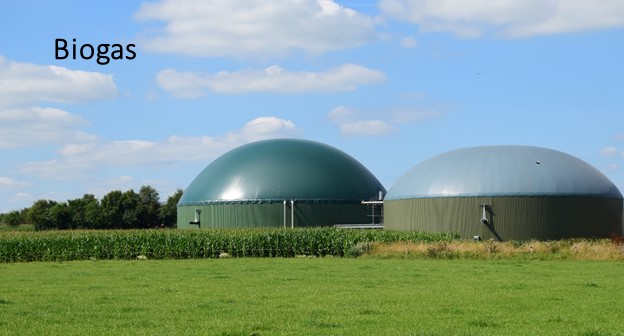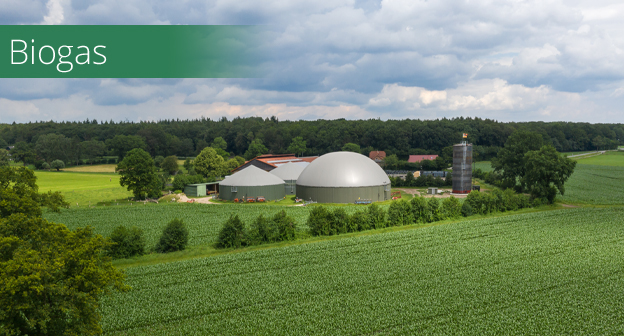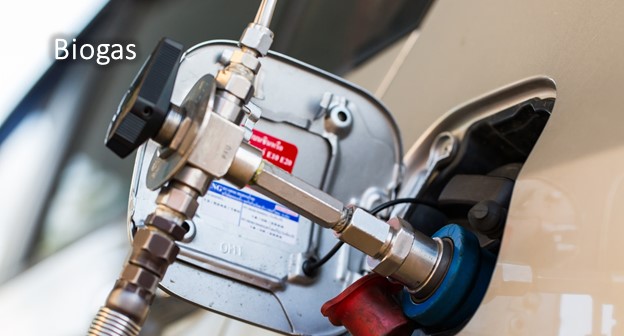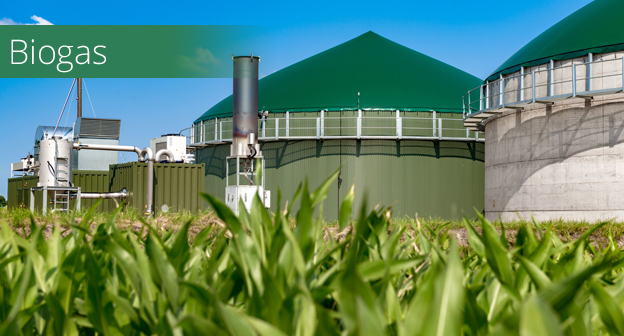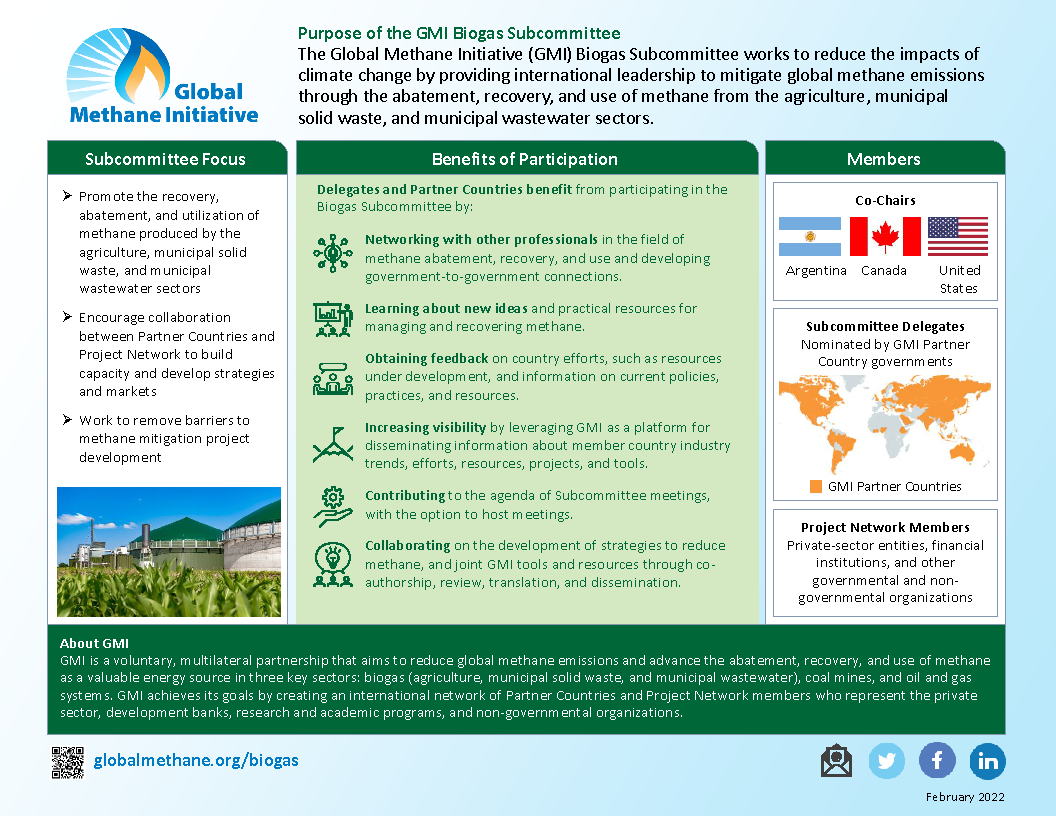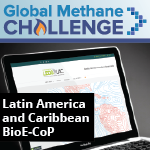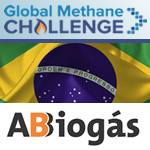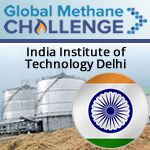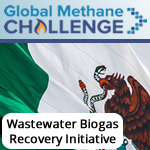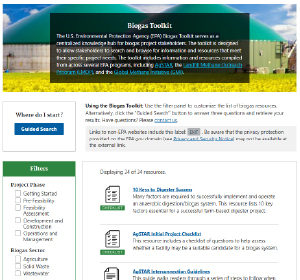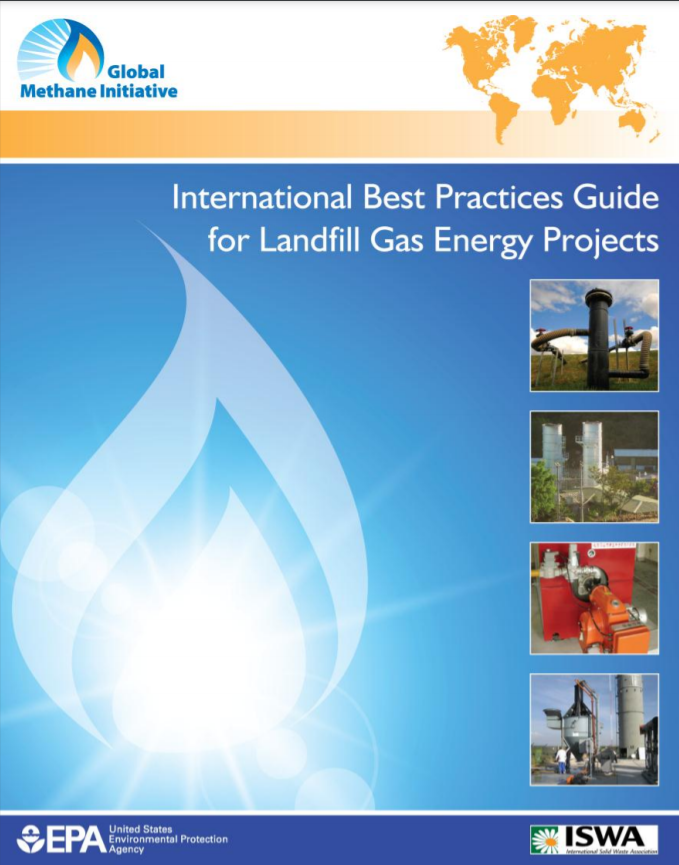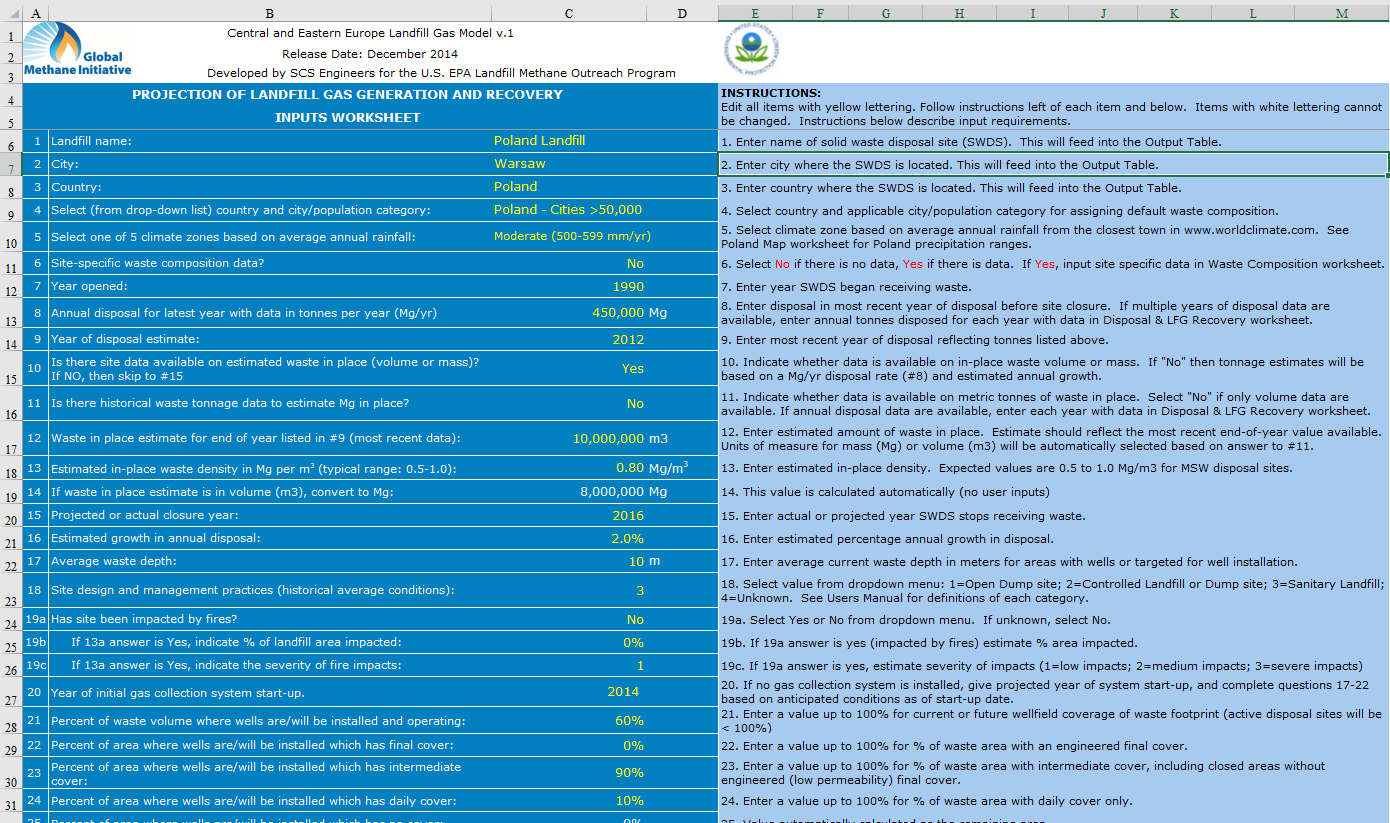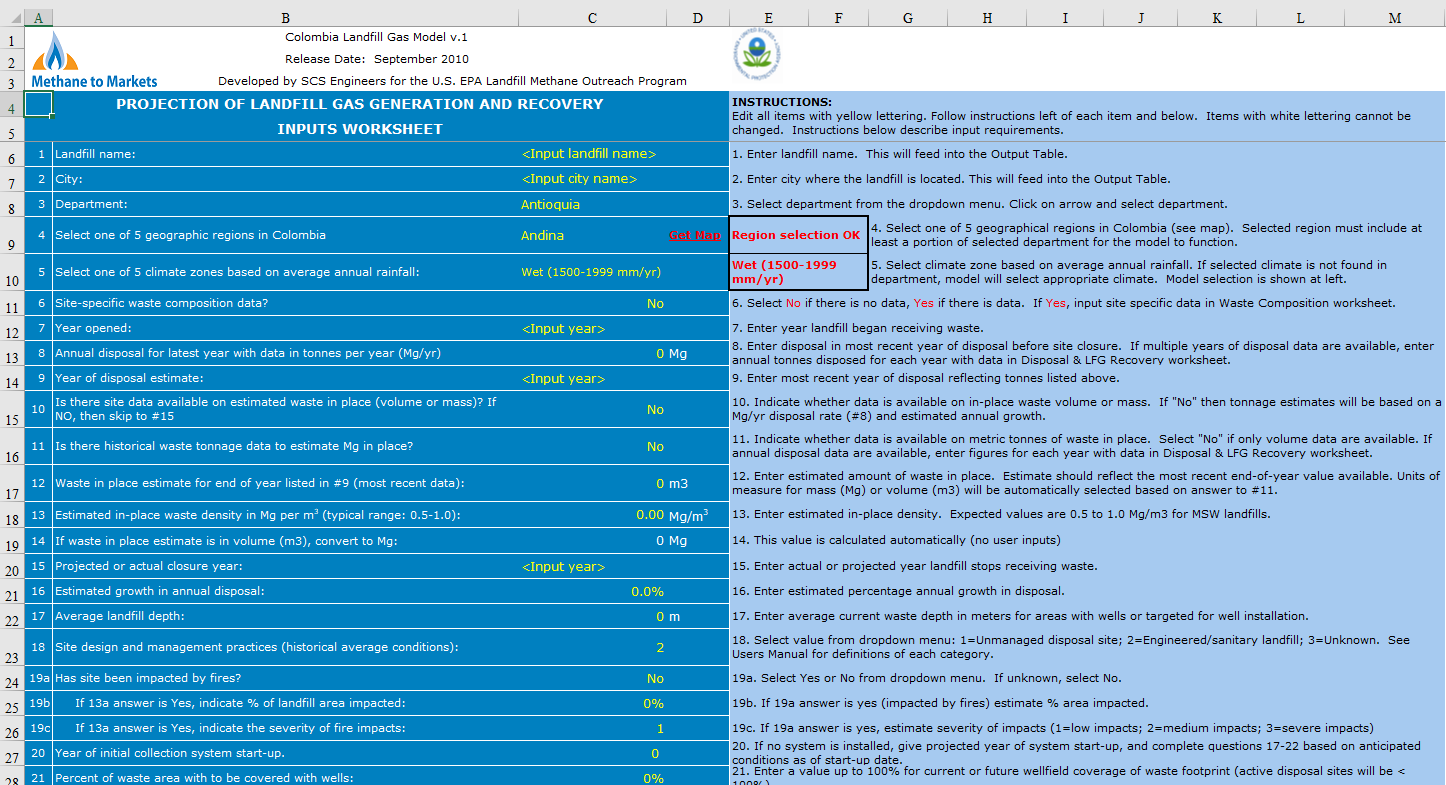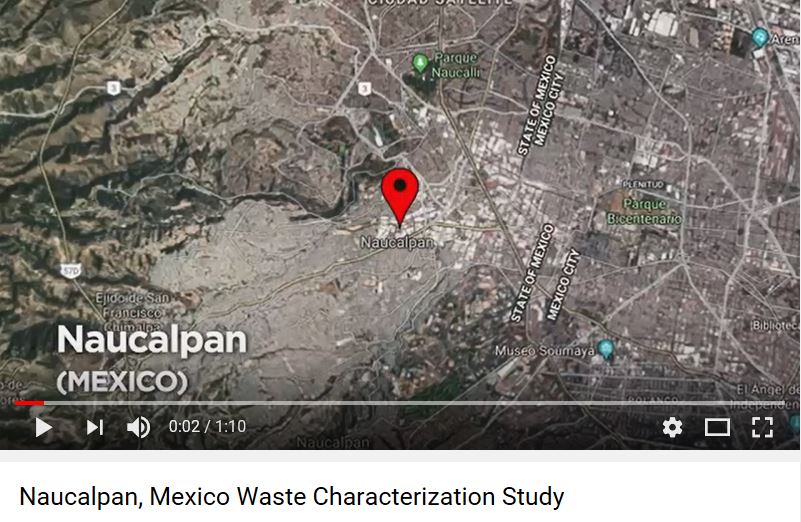Biogas Sector
The GMI Biogas Subcommittee focuses on building capacity within Partner Countries to leverage common interests across the areas of agriculture, municipal solid waste, and municipal wastewater. These interests include biogas energy use, the types of wastes managed, waste treatment technologies, and the potential for synergistic projects involving input streams from multiple sources. Efforts include developing and promoting tools, policy guidance, and project development resources at the national, state, and city level within Partner Countries.
GMI Technical Groups
Within the Biogas Sector, GMI maintains active technical groups in the areas of agriculture, municipal solid waste (MSW), and municipal wastewater. These groups provide international leadership to mitigate global methane emissions through the abatement, recovery, and use of methane. They promote collaboration between delegates from Partner Countries and Project Network members to build capacity, develop strategies, and expand opportunities for using methane as a renewable energy resource.
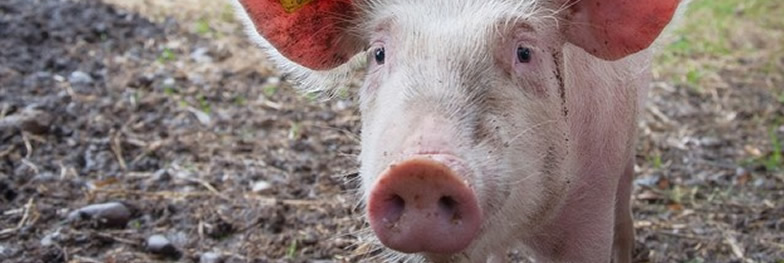
Agriculture
Methane emissions come from livestock enteric fermentation, livestock waste management, rice cultivation, and agricultural waste burning.
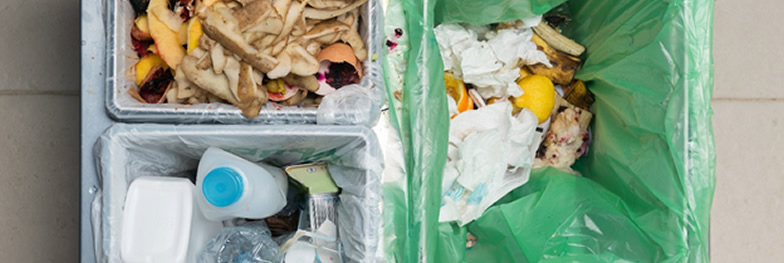
Municipal Solid Waste
Municipal solid waste management and treatment activities such as landfilling and anaerobic digestion are sources of methane emissions worldwide.
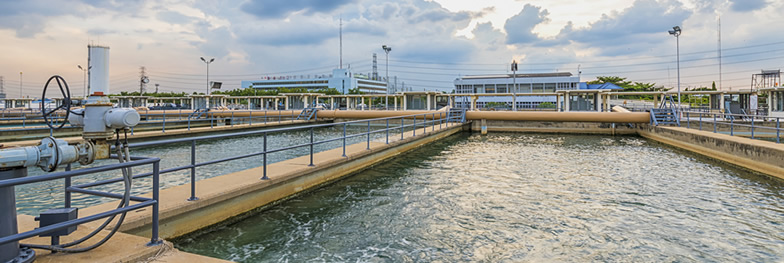
Municipal Wastewater
Methane is produced when the organic material in municipal wastewater decomposes anaerobically.
